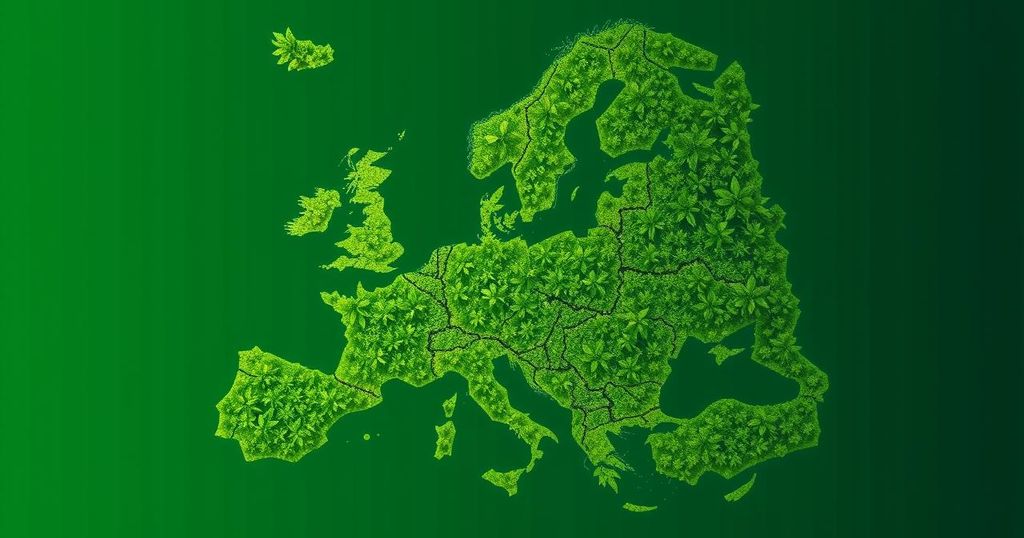Pro-Kremlin Media’s Strategic Use of Climate Change Discourse
As COP 29 approaches, pro-Kremlin media acknowledge climate change but use it to attack Western policies and undermine the credibility of the EU. This shift reflects a strategic evolution in Russian narratives, often criticizing Western governments while promoting Russian energy interests. The underlying tactic incorporates both recognition of climate issues and efforts to sow doubt about Western responses, reflecting a complex narrative interplay in climate discussions.
As the UN Climate Change Conference (COP 29) approaches, pro-Kremlin media coverage of climate issues reveals a strategic approach. While acknowledging the reality of climate change, these outlets employ it to criticize Western policies and diminish the credibility of EU governments. This tactic has evolved over time, as larger Russian state-controlled outlets now acknowledge scientific consensus, yet continue to manipulate the narrative to challenge Western countries as hypocritical, specifically regarding their energy practices. The narratives emerging from these outlets generally take a two-pronged approach. On one hand, they highlight climate change and extol measures, such as Denmark’s greenhouse gas tax on cattle, while, on the other, they propagate the notion that climate change is an ideological tool used by Western elites to further dubious agendas. Moreover, they sometimes present a contradictory viewpoint by suggesting that climate change could hold potential benefits for Russia, promoting the idea of a warmer climate transforming its landscapes into fertile territories. Climate change skepticism persists in pro-Kremlin rhetoric, primarily aimed at delegitimizing the EU and its initiatives. Commentary often portrays climate change as a façade for Western incompetence and nefarious intentions. This attack methodology frequently mocks perceived European absurdities about climate policies, thus reinforcing a narrative of Western elites allegedly using climate crises to exert control over public behavior and governance structures. Allegations of conspiracy theories are rife, with claims ranging from nefarious family interests creating the climate change narrative to absurd assumptions regarding governmental weather manipulation tactics. Even commonplace environmental initiatives, like NatWest’s carbon footprint tracker, are portrayed as part of a broader strategy for enforcing conformity and central control over citizens’ lifestyles. The core strategy deploys climate narratives as instruments of disinformation, aiming to foster distrust in Western governments. Pro-Kremlin narratives are malleable; while they rarely challenge the existence of climate change, they do utilize moments when such skepticism could serve their overarching objective—to depict Western entities as misguided or malevolent actors.
The coverage of climate change by pro-Kremlin media has reshaped over time, showing a distinct evolution in how climate narratives are constructed and disseminated. Initially, Russian state media often dismissed the scientific consensus on climate change. However, in recent years, they have shifted tactics to acknowledge this consensus while simultaneously weaponizing the topic against Western governments. As an example, these media outlets criticize the EU for its energy policies while positioning Russian gas as a viable solution, thereby framing their stance as a critique rather than outright denial of climate change. This framework highlights the complex interplay of climate discourse and political strategy in the pro-Kremlin media landscape, particularly in the context of upcoming international climate negotiations.
In conclusion, the manipulation of climate change narratives by pro-Kremlin media serves as a sophisticated tactic to undermine Western credibility. By framing environmental issues through the lens of suspicion and conspiracy, these outlets seek to promote a narrative that positions the EU and its policies as ineffectual and driven by ulterior motives. The strategic use of climate change in disinformation campaigns underscores the need for critical analysis of environmental discourse as it relates to wider geopolitical conflicts.
Original Source: euvsdisinfo.eu




Post Comment